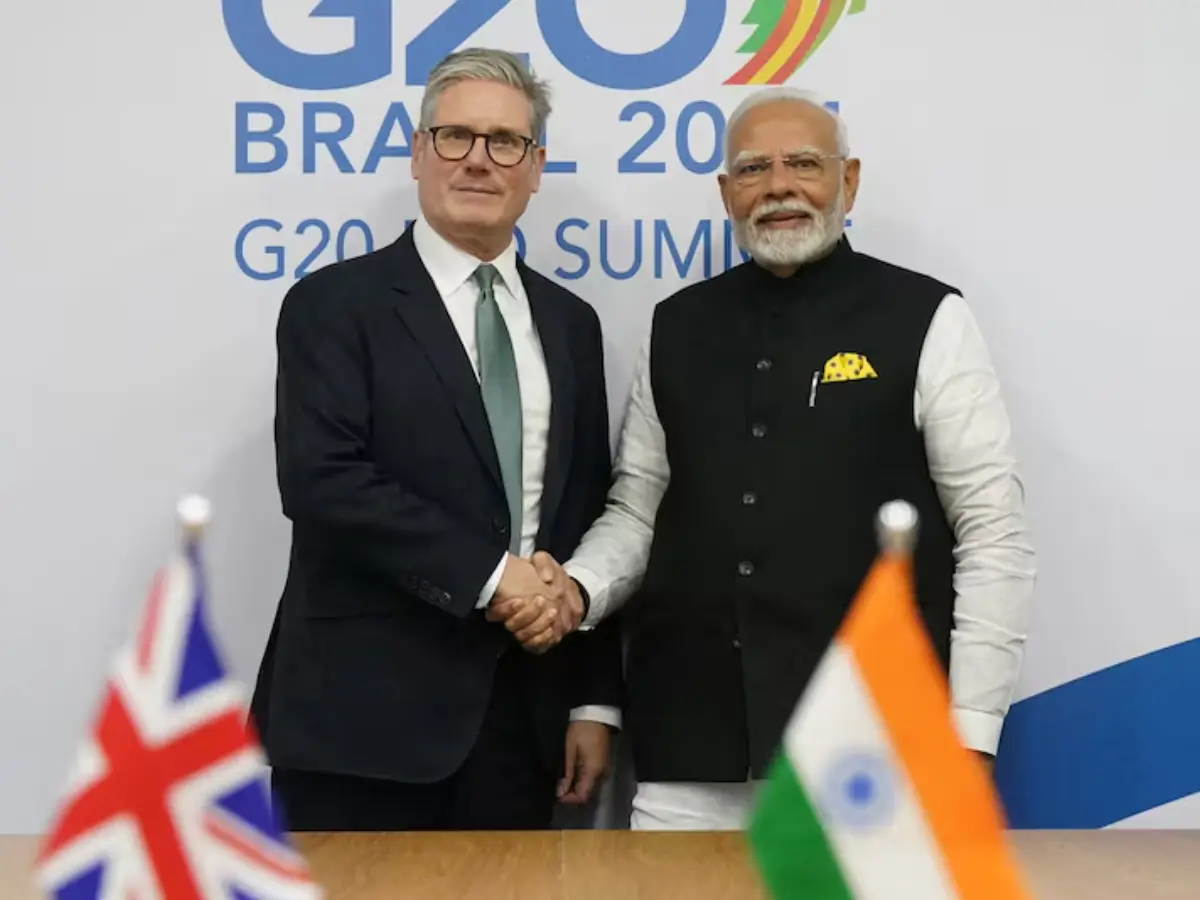India’s Prime Minister, Narendra Modi, arrived in London on Thursday (July 24) for a two-day official visit to finalise a historic free trade agreement with the United Kingdom. The pact is seen as a major political and economic win for both nations at a time of growing global trade tensions.
Why does this deal matter for both sides?
This is the UK’s most important trade agreement since Brexit, and India’s first major free trade deal outside Asia. For Britain, it offers a chance to boost post-Brexit trade. For India, it promises to support exports and investment. Modi’s fourth visit to the UK as prime minister includes talks with British Prime Minister Keir Starmer on defence, technology, trade and security. He will also meet King Charles during his stay.
Key wins for India during negotiations
India stood firm during talks and secured several key demands. These include concessions on work visas, recognition of professional qualifications, and exemptions from national insurance contributions for temporary Indian workers in the UK. Indian exports, covering goods such as gems, textiles, leather, garments, engineering products, and processed foods, will see 99% of tariffs scrapped under the deal.
In exchange, the UK will benefit from phased tariff reductions on 90% of its exports to India. Scotch whisky tariffs will be cut from 150% to 75% immediately and down to 40% over ten years. British-made cars, which currently face tariffs over 100%, will see duties drop to 10% within a quota. Other sectors to gain include medical devices, pharmaceuticals, electronics and aircraft components.
What does this mean for Indian industries?
The Indian government hopes the deal will revive its ‘Make in India’ initiative and attract foreign investment, which has slowed recently. However, India kept its large agricultural sector off the table, a red line for New Delhi that has also blocked similar talks with the United States.
Some parts of the deal may face backlash. Indian whisky producers have already expressed concern over what they call “unfair competition” from British imports. In a major shift, UK firms will now be allowed to compete in India’s large government procurement market, which could open doors in clean energy, transport and infrastructure.
But not everything made it into the final agreement. The UK’s proposed carbon border tax, known as the carbon border adjustment mechanism (CBAM), was left out. India sees it as unfairly targeting developing economies like itself.
Only the broad framework of the deal is public for now, but it marks a clear move away from India’s traditionally cautious and protectionist trade approach.
